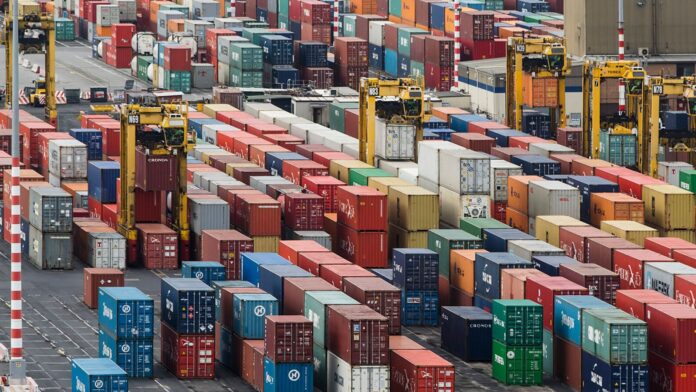Nigeria, Africa’s largest economy and most populous nation, is at a critical crossroads. Despite its vast natural resources and youthful population, the country faces significant economic challenges that threaten its stability and growth. As we look to the future, understanding the factors influencing Nigeria’s economy and identifying actionable strategies for recovery and sustainable development is essential.
Current Economic State
Nigeria’s economy has been characterized by volatility, largely due to its heavy dependence on oil revenues. The oil sector remains the backbone of the economy, contributing significantly to government revenues and foreign exchange earnings. However, this reliance makes Nigeria vulnerable to fluctuations in global oil prices. Recent trends indicate a modest GDP growth rate of approximately 3.1% in 2024, driven by both oil and non-oil sectors.
Key Challenges
- Inflation: Inflation has surged to alarming levels, reaching a 24-year high of 31.7% in early 2024. This inflationary pressure is primarily driven by rising food prices and the depreciation of the naira, which erodes purchasing power and exacerbates poverty levels.
- Corruption: Corruption remains a pervasive issue that hampers economic growth and deters foreign investment. It undermines public trust in institutions and diverts resources away from essential services.
- Insecurity: The security situation in Nigeria is precarious, with ongoing conflicts in various regions affecting economic activities and investor confidence. High levels of insecurity disrupt trade routes and contribute to rising costs for businesses.
- Infrastructure Deficits: Nigeria’s infrastructure is in dire need of improvement. With only 30% of its GDP allocated to infrastructure development—far below the World Bank’s recommended benchmark of 70%—the country struggles with inadequate transportation networks, unreliable power supply, and limited access to financial services.
- High Unemployment Rates: With unemployment rates hovering around 33%, particularly among youth, the lack of job opportunities poses a significant challenge to social stability and economic growth.
Government Response and Reforms
In response to these challenges, the Nigerian government has initiated several reforms aimed at stabilizing the economy and promoting growth:
- Fiscal Reforms: The removal of fuel subsidies and allowing the naira to float are significant steps taken under President Bola Tinubu’s administration. These measures aim to reduce fiscal deficits while encouraging a more market-driven economy.
- Investment in Agriculture: Recognizing the need for diversification away from oil, the government has emphasized agricultural development as a priority. Investments in modern farming techniques and infrastructure are crucial for enhancing food security and creating jobs.
- Infrastructure Development: The government has committed to improving infrastructure through various initiatives aimed at modernizing roads, railways, ports, and power grids. However, successful implementation remains a challenge due to bureaucratic inefficiencies and corruption.
- Strengthening Governance: Efforts to combat corruption through enhanced transparency measures are critical for restoring investor confidence. Strengthening institutions will also play a vital role in ensuring effective policy implementation.
Pathways to Sustainable Growth
To navigate its economic challenges effectively, Nigeria must adopt a comprehensive approach that addresses immediate needs while laying the groundwork for long-term prosperity:
Economic Diversification
Diversifying the economy away from oil dependency is paramount for sustainable growth. Key sectors that hold promise include:
- Agriculture: Investing in agricultural modernization can enhance productivity, create jobs, and improve food security.
- Manufacturing: Encouraging local manufacturing can reduce reliance on imports while creating employment opportunities.
- Technology: The tech sector is emerging as a crucial driver of growth. With a young population increasingly engaged in digital technologies, fostering innovation can lead to significant economic contributions.
Enhancing Education and Skills Development
Investing in education is vital for equipping the workforce with skills relevant to emerging industries. This includes:
- Expanding vocational training programs tailored to market needs.
- Promoting STEM (Science, Technology, Engineering, Mathematics) education to prepare youth for careers in technology-driven sectors.
Improving Business Climate
Creating an enabling environment for businesses is essential for attracting both domestic and foreign investment:
- Simplifying regulatory processes can encourage entrepreneurship.
- Ensuring consistent enforcement of laws will enhance business confidence.
- Strengthening property rights will attract long-term investments.
Infrastructure Investment
Addressing infrastructure deficits requires significant investment:
- Public-private partnerships (PPPs) can mobilize resources for infrastructure projects.
- Prioritizing energy projects will alleviate power shortages that hinder industrial growth.
Fostering Foreign Direct Investment (FDI)
Attracting FDI is crucial for capitalizing on Nigeria’s growth potential:
- Creating incentives for foreign investors can stimulate inflows into key sectors.
- Improving security conditions will enhance investor confidence.
- Establishing special economic zones can attract investment by offering favorable conditions for businesses.
Engaging with Global Markets
As Nigeria seeks to revitalize its economy, engaging with global markets will be vital:
- Regional Integration: Strengthening ties within Africa through initiatives like the African Continental Free Trade Area (AfCFTA) can enhance trade opportunities.
- Global Partnerships: Collaborating with international organizations can provide technical assistance and funding for key projects aimed at economic development.
Conclusion
The road ahead for Nigeria’s economy is fraught with challenges but also rich with opportunities. By embracing comprehensive reforms that address structural weaknesses while fostering inclusive growth, Nigeria can pave the way for a more resilient economy.The collaboration between government entities, private sector stakeholders, and civil society will be crucial in this endeavor. As Nigeria moves forward, it must remain committed to creating an equitable society where all citizens can thrive economically.With strategic planning and concerted efforts towards reform, there is hope for a brighter economic future that not only recovers from past setbacks but also builds a foundation for sustainable development for generations to come.

